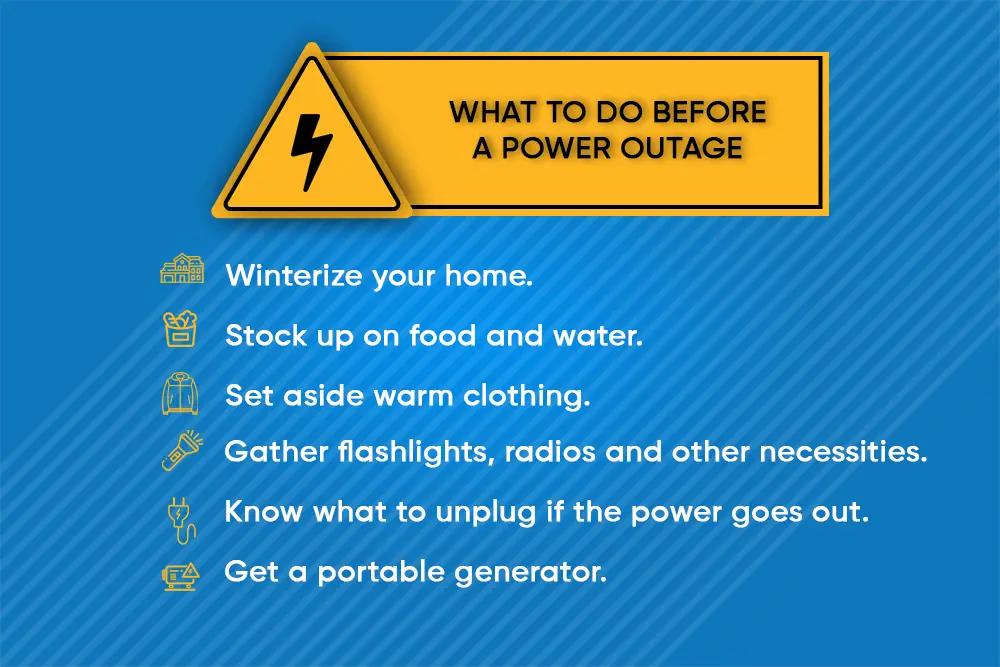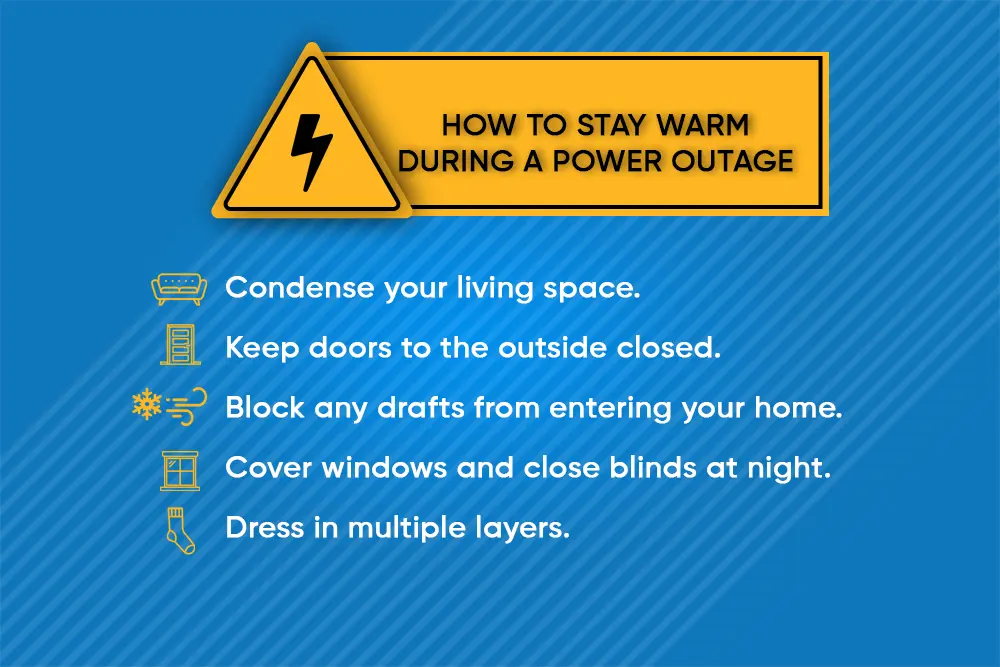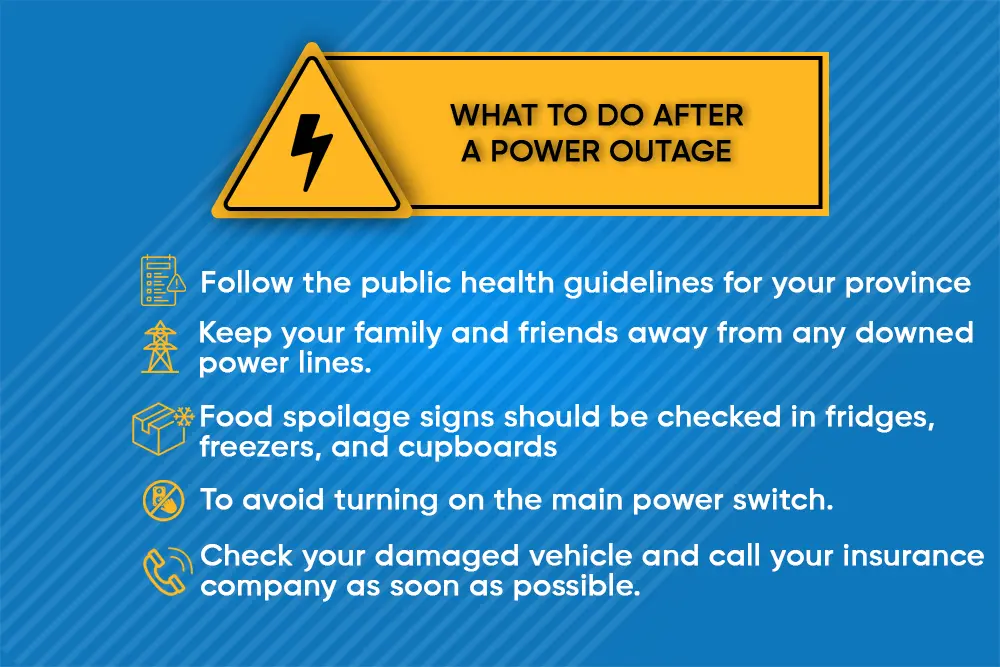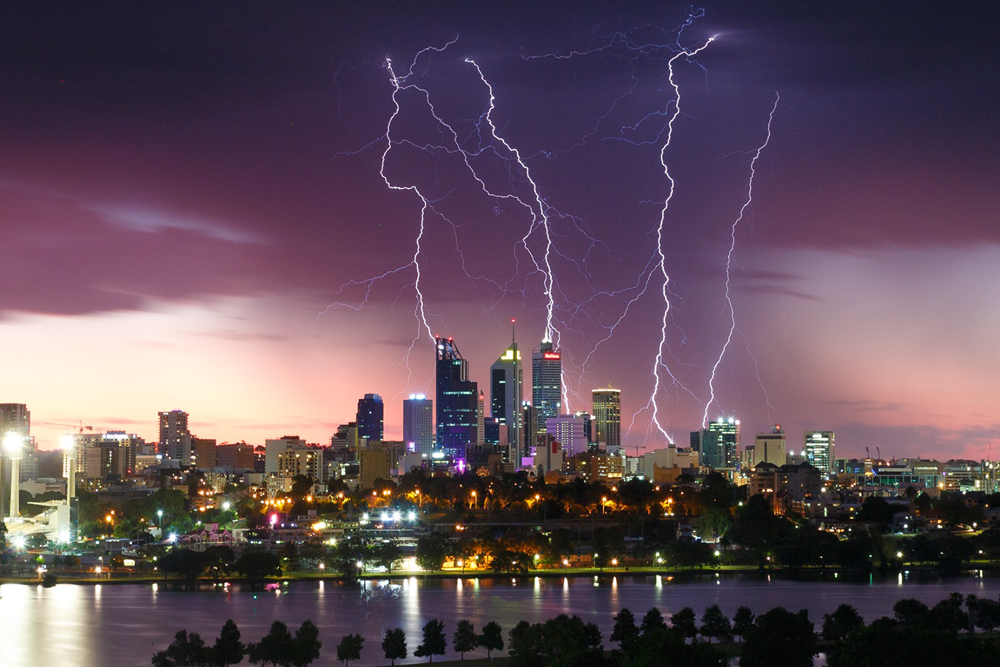Sudden power outages can cause frustration and even create problems. Blackouts can be frustrating and dangerous due to heat waves, winter storms, and other natural disasters such as earthquakes, hurricanes, and tornadoes. Here are some tips to help you prepare for, during, and after a blackout.
What are blackouts?
A blackout or power outage is when you lose electricity in your home or business. Blackouts can last minutes, hours, days, or even weeks. Natural blackouts are caused by events like storms and earthquakes that damage power lines and transformers. Human-caused blackouts occur when utility companies have to turn off power because of problems with their equipment or during maintenance work.
Know the risks
If you’re located in an area that experiences regular blackouts, it’s essential to understand what could happen if one occurs while your system is not receiving power. If no sunlight comes into your home, you will only have battery backup for about six hours. Your appliances may still operate on battery backup but are likely not designed for continued use without plugging into wall outlets.
How to prepare for a power outage?
It’s always best to be prepared before an emergency happens. Be sure you’re prepared with lots of cash, canned food, and batteries for flashlights in case of a blackout. You must also have candles and matches on hand just in case your flashlights run out of batteries or go missing when you need them most. There are many more things that let you stay prepared for blackouts, like you can get your home installed with a solar panel.
A solar panel will help you keep your appliances running during a blackout. If it’s not too late already, consider installing solar panels on your roof to ensure that you can still use some necessities even if there is no electricity around you.
The blackout preparation has many tips to follow; some of the most common are mentioned below:
What to do before a blackout?

- Make sure you have flashlights and batteries on hand in an emergency.
- Make sure your cell phone is fully charged in case of emergency calls or texts from loved ones.
- Have extra cash on hand, as ATMs may not be working during a blackout (credit cards and debit cards won’t work either)
- Keep a list of emergency numbers handy (fire department, police department, etc.).
- Know where your home’s main circuit breaker is located and how to turn it off in an emergency.
- Find out if your home is equipped with a generator and know how to use it if necessary (you may need help from an electrician).
- Charge your cell phone, laptop, and tablet devices.
Most Important: Make sure your emergency kit is easy to grab and take with you if you need to evacuate. It should include flashlights with extra batteries, matches in a waterproof container, bottled water, and nonperishable food items (like granola bars), as well as any important documents (like copies of your insurance cards). Keep these items in an easy-to-access place in case you need them quickly.
What to do during a blackout?

- Turn off all electronics plugged into an outlet, including cell phones and laptops. This will help prevent damage from surges in electricity.
- Unplug appliances such as televisions, refrigerators, and microwaves that use up large amounts of energy when they’re on but not being used
- Close your refrigerator door tightly, and unplug it if you’re going to be away from home for more than four hours
- If your car is parked in an enclosed garage, turn off your engine and close all garage doors to prevent carbon monoxide from entering your home 5. Don’t use candles as a source of light; they can quickly start fires or cause burns if you accidentally knock them over
- Use flashlights instead of candles or lanterns; never leave them unattended or near flammable materials such as curtains or furniture.
- Don’t operate any electrical equipment that is plugged into an extension cord.
What to do after a blackout?

- Follow the public health guidelines for your province/territorial to check on family members, friends, or neighbours who might need assistance.
- Keep your family and friends away from any downed power lines. Notify the authorities in your area about any downed power lines.
- You should inspect the exterior of your house for signs of danger or damage.
- Throw it away if in doubt! Food spoilage signs should be checked in fridges, freezers, and cupboards. Food should be kept frozen for between 24-36 hours depending on the temperature if it has been closed. It is best to throw out food that has begun to defrost.
- To avoid any damage caused by a surge in power, turn on the main power switch.
- If you suspect your vehicle is damaged, check under and inside it. Don’t touch anything if you don’t know what it is. Call your insurance company as soon as possible. Don’t attempt to move or tow any car that has come into contact with electrical wires, especially if they are still alive.
Final Words
If you don’t have an electrical generator, it might be wise to invest in one. This is especially true if you rely on electricity for your water heater, heating, or air conditioning unit. Solar storage systems can also help with blackouts because they can act as batteries and store energy during daylight hours.
But that can be a secondary thing first, and you must follow these tips to ensure you, your family, and your neighbours are safe. Don’t wait until it happens to find out what you should do. Plan ahead!





